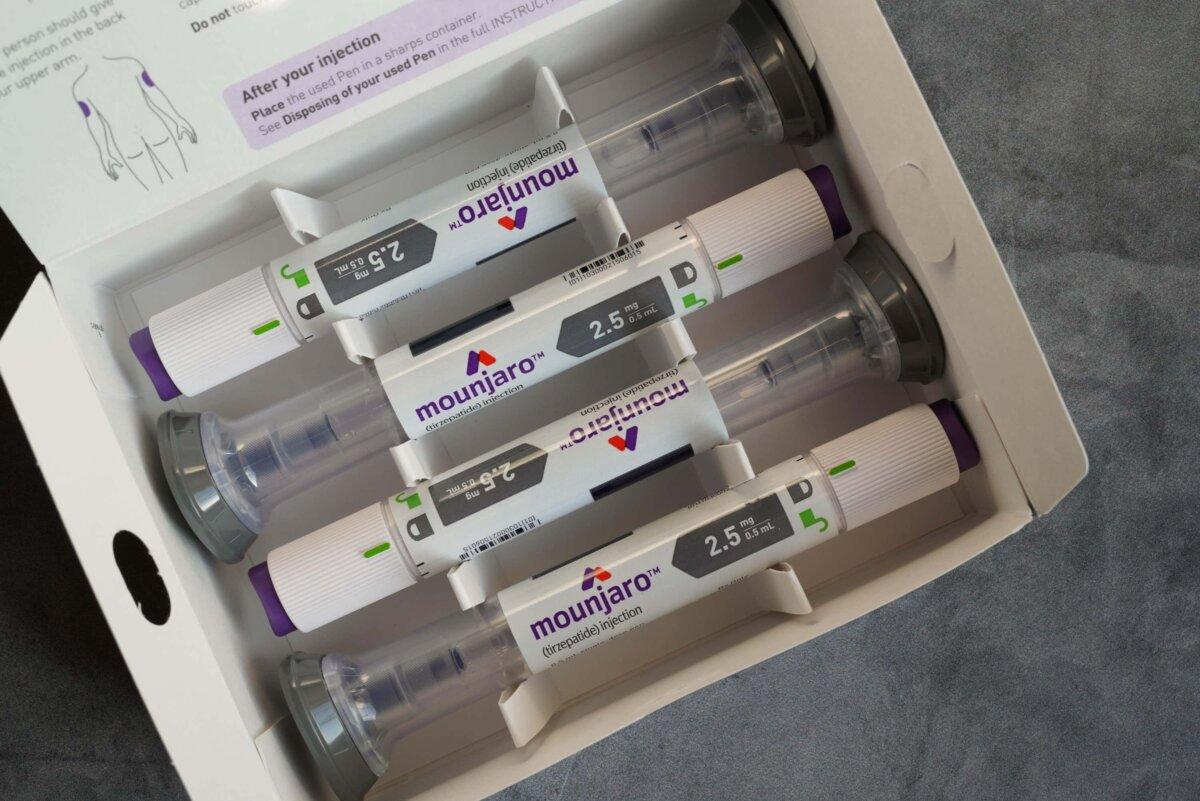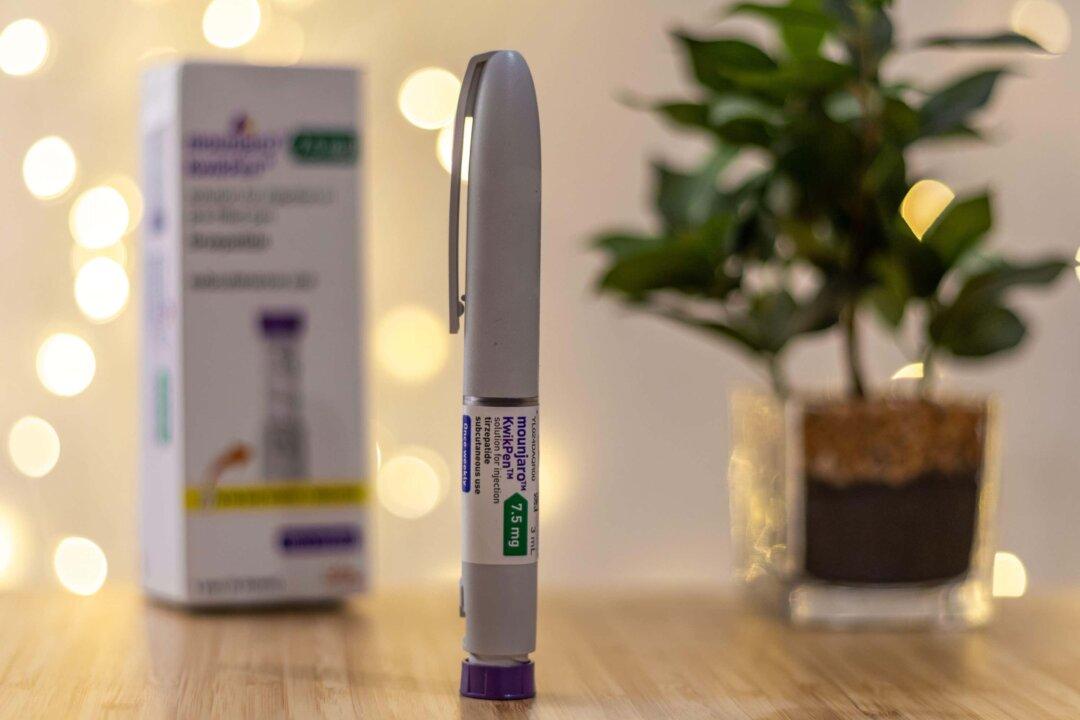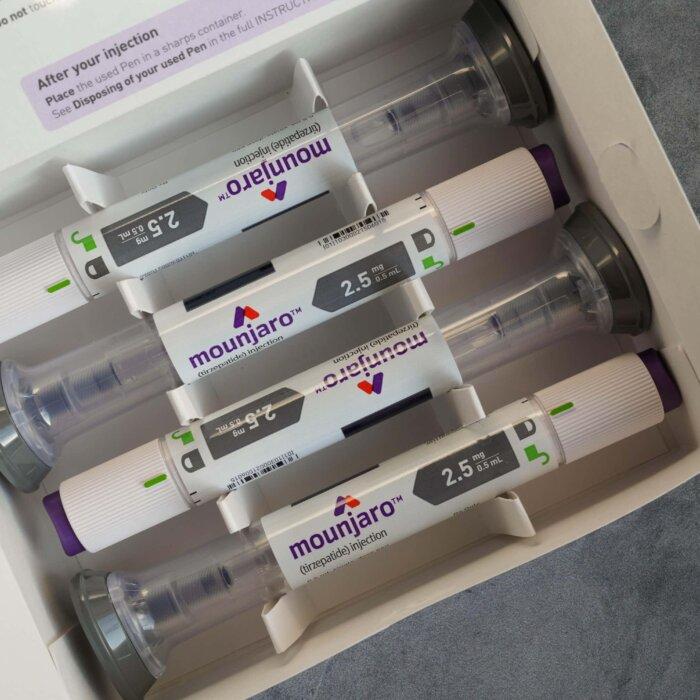Fewer than one in 10 people in England who are eligible for what has been dubbed the “King Kong” of weight-loss drugs will initially be able to access it on the health service, after officials revealed they are prioritising people with the greatest need.
The “difficult decision” to ration the in-demand Mounjaro jabs was made “in order to protect other vital NHS services,” the National Institute for Health and Care Excellence (NICE) said.
The NHS spending watchdog has recommended Mounjaro—also known as tirzepatide and made by pharmaceutical giant Eli Lilly—for those with a body mass index (BMI) of more than 35 and at least one obesity-related condition.
This is estimated to mean that about 3.4 million people would qualify for the drug—a significant percentage of the adult population—but NICE has said that only about 220,000 people could benefit from the drug in an initial three-year trial period.
After this, the situation will be reviewed by NICE, which will provide further guidance on the roll-out. The cost of the drug to the NHS is £122 per patient per month for the maximum dose, which is a self-administered pen injection.
Mounjaro is a glucagon-like peptide-1 (GLP-1) agonist, a family of medications that help manage blood sugar and originally licensed as drugs for diabetics, before being repurposed when they were found to have appetite-suppressant properties.
Other GLP-1 agonists include semaglutide, which is sold under the brand names Wegovy, Ozempic, and Rybelsus.
Pilot Scheme
A pilot scheme run by Health Innovation Manchester on behalf of the NHS and in conjunction with Lilly is due to begin, aiming partly to establish the effectiveness of the drug in helping to get people back to work.The once-weekly jab should be prescribed along alongside advice on a reduced-calorie diet and exercise to help people lose weight.
Professor Jonathan Benger, chief medical officer at NICE, said in a statement: “The world will look very different in three years which is why we’ve taken the unprecedented decision to review the way this medicine is delivered to patients then.
“Tirzepatide and other drugs like it, such as semaglutide, will help people living with obesity to lose weight, and as a result will reduce their risk of developing heart disease or having a stroke.
“But tirzepatide is not for everybody, and only those with the highest clinical need will be treated initially.
“This means many people will have to wait. We have had to make this difficult decision in order to protect other vital NHS services and also to test ways of delivering this new generation of weight loss medications.”

Final draft guidance published by NICE shows NHS England requested that Mounjaro is rolled out gradually over a period of 12 years.
The watchdog recommends prioritising patients receiving care from specialist weight management services that will be able to access the drug within 90 days of the guidance being published on Dec. 23.
Impact on Other Services
Benger added, “We want to help NHS England carefully manage the roll-out of tirzepatide to ensure that other services are not impacted in a disproportionate way.”NICE will review the situation again within three years and provide further advice on how the roll-out of this medicine can be managed, using the learning gained from the initial phase.
Dr. Kath McCullough, NHS England’s national adviser for obesity, warned that weight loss jabs “are not a magic bullet.”
She said: “Obesity is one of the greatest public health issues facing the NHS and weight loss drugs, such as tirzepatide, are an important tool in helping people lose weight while also reducing the risk of other serious long-term conditions such as diabetes, strokes and heart attacks.
“However, on their own, weight loss drugs are not a magic bullet. They need to be prescribed by a healthcare professional alongside programmes that help people lose weight and live healthier lives by making changes to their diet and physical activity—and it’s also crucial that they are prioritised for those who need them most.
“This guidance enables the NHS to implement a phased roll out of tirzepatide to patients with the highest clinical need in a safe and effective way, while also protecting access to the NHS services that all patients rely on.”

Side Effects
A trial of the drug run by makers Eli Lilly—known as Surmount-5—found patients on tirzepatide recorded a weight loss of 20.2 percent compared to 13.7 percent in patients on semaglutide, meaning that Lilly can claim it is more effective than its rival.Mounjaro is also claimed to have fewer reported side effects, although individuals may still experience unwanted symptoms. They most commonly include fatigue and digestive issues, such as constipation and nausea.







